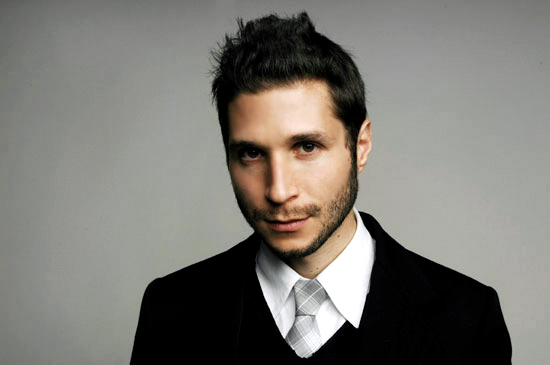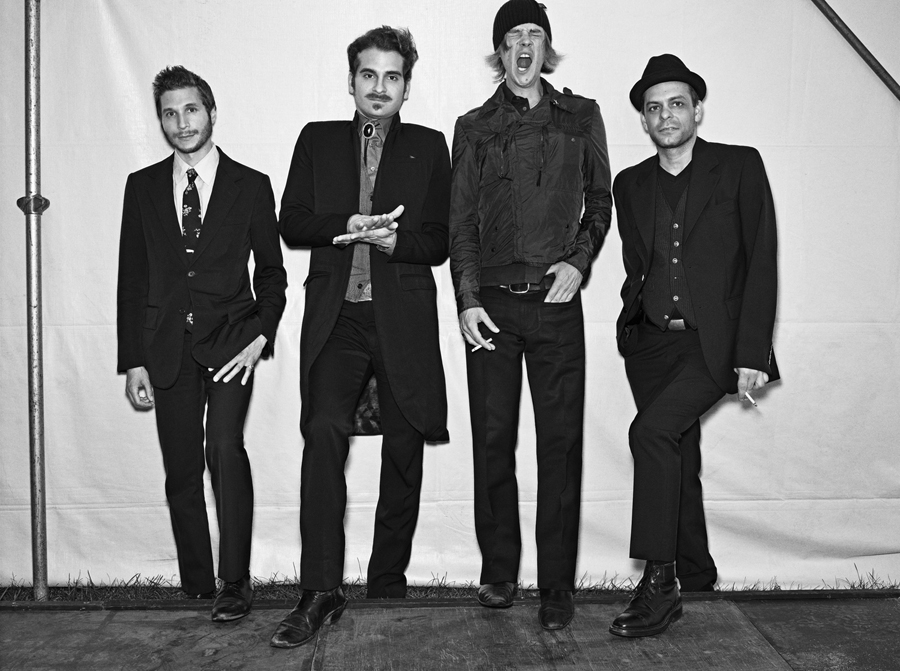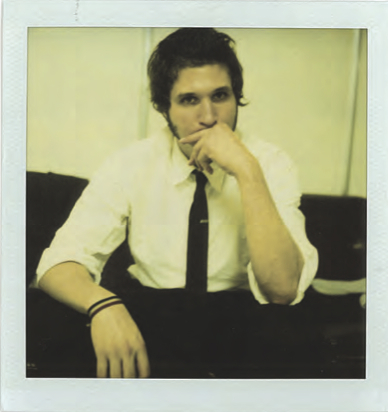
BPM: I was looking through the liner notes and it strikes me that almost all the early rehearsal space have either been converted into diners or hotels or simply fallen into disuse. How does it make you feel that they no longer exist? Do you think that will deprive current bands of similar opportunities?
DK: Having lived in New York City for a very long time, there was a point where I was becoming an old man about the whole thing, lamenting all the changes – [adopts haggard tone] “ugh, I can’t believe they’re putting up another glossy condominium,” you know? I know a good deal about the city and I love the history of it, and I became comfortable with the notion that New York is not a stable city and it’s never been that way. Looking back centuries and centuries ago it has always been about evolution and new occupants. Manhattan in the past 15 years has undergone an incredible socioeconomic change that is unprecedented in some ways, the town shifting from blue to white collar. I had to let go of the city and once I moved out to Brooklyn I felt a lot better about the whole thing! But now there’s a lot more clubs for upcoming bands; back then there were about two that you’d actually want to play, with a lot of competition to get slots there. So while Manhattan has undergone change, there’s some really cool stuff coming out of the other boroughs these days.
I definitely had the thought that we would never make a record.
BPM: Seeing as Interpol was comprised of members from across the globe, did it ever ire the band being lumped in with this quintessential ‘New York scene’ or did you take it as a point of pride?
DK: Even when the band was just starting out it had been the place I had lived the longest and I love it there, so it was kind of important to me to be a band from New York as there wasn’t a whole lot going on at the time. While we’re not strictly ‘from there’ many people aren’t, as it’s this mecca that people converge upon, so nah, it didn’t bother me at all – it felt good and correct. And yeah, those were some really tremendous bands coming up at that time period in the context of the New York City rock scene. The only thing that was slightly over-romanticised from the outside was the hope that this was the second coming of the CBGB scene and it wasn’t quite like that, we didn’t all know one another. When we were getting to make our first record I knew of the Yeah Yeah Yeahs and the attention The Strokes brought to the city was great, but it wasn’t as if we were meeting at the same bar and trading instruments. We were all just doing our own thing. In the late 90s and early 00s we wished we had something like that, playing shows with likeminded spirits rather than being on an ill-fitting bill, but that wasn’t the case.
BPM: Given that your first release was on UK label Chemikal Underground, how did it feel stepping out for your first international shows and finding that people were taking note outside the States?
DK: Through working at record labels I knew the Mogwai guys, who were on Chemikal Underground at the time, so that connection helped foster an opportunity to work together. That led to the Fukd I.D. #3 release which was really exciting at the time, and, while going to England to do a few dates on that little bit of interest was economically not very feasible, it would have been almost foolish not to, so we pooled all our money together and went over there. Also, the good people at Chemikal Underground put us in touch with The Peel Session people and, while it was exciting just to do that, it was great because that bit of money helped with air fare. But no-one knew who we were obviously and while I’m sure Chemikal Underground sold very slow at that time period, it was a really fun few days tour, very colourful and such an honour to do a Peel Session too.
Any decisions are always pretty painful – in life! – but certainly within a band, and sequencing is a big one. I remember very clearly with Antics we were all in agreement, which was pretty rare. I think with Bright Lights it wasn’t too bad – some trading back and forth and a bit of renegotiating amongst each other but it all kinda made sense. We already knew “Untitled” would be the first song and maybe we had an idea that “Leif [Erikson]” would be the last, so that probably helped. I personally really like ten-song albums, so that it finishes and someone will want to hear it again as opposed to making them check their watch as it drags on a little bit. But we had eleven songs and so we had to compromise. It was a really difficult decision not to put “Specialist” on the album as it truly could have played a part; it was as strong as any song on the record in our opinion, but with the wider picture in mind we took “Specialist” off as it was really long and we wanted to strike a balance. To this day when we play live people request that song and I understand, it wasn’t as if it was inferior but for the betterment of the record we felt we should reduce the length.


